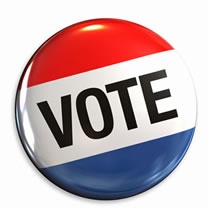Voting rights battles revived in states

In 2011, Republican-led state legislatures across the South and country pushed dozens of new voting restrictions, including measures requiring voters to show photo ID at the polls.
Now, with the November elections looming, the battles over voting rights have erupted again.
VIRGINIA JOINS THE FRAY
In the battleground state of Virginia, this week the GOP-controlled House of Delegates passed by a 69-30 margin a measure that would make voters without ID case a provisional ballot. Currently, voters who don't present ID are required to sign a sworn statement about their identity; false statements are considered a felony.
Nationally, voting rights groups estimate that up to 11 percent of voting-eligible citizens don't currently have photo ID, which the policy group Demos says in Virginia translates into more than 600,000 voters.
Drawing on an analysis by Facing South last year, Demos also points out that Virginia's voter ID bill would cost millions of dollars at a time the state is slashing the state's Medicaid budget and long-term senior care and nursing care programs.
CURRENT LAWS FACE SCRUTINY
In states that have already passed voter ID measures, the laws continue to face scrutiny and refinements. In Tennessee, which passed one of the nation's most restrictive bills in 2011, lawmakers have introduced bills that would allow counties to issue free IDs to those who don't have them. Another Tennessee bill allows ID cards issued to state and local government employees be considered valid ID for voting.
After a wave of negative publicity about seniors who would be disenfranchised by the bill, including a 96-year-old African-American woman from Chattanooga, Republicans have also proposed allowing voters aged 60 or older to request an absentee ballot if they don't have valid ID.
Even Georgia, which has required ID since 2007, is considering tweaks to its bill. A bill introduced by Democratic Rep. Alisha Thomas Morgan would add student IDs to the list of acceptable voting identification.
STALLED IN COURT
South Carolina's new voter ID requirement remains deadlocked in court, after the Department of Justice declined to approve the bill on grounds that the state couldn't prove it wouldn't adversely effect historicaly disenfranchised voters.
The state hired a high-power D.C. law firm to represent its case, which could end up costing the state more than $1 million in legal bills alone. State Republicans rushed to publish a report claiming that more than 900 dead voters had allegedly cast ballots, showing the need for the ID bill, but the claims began to unravel under scrutiny by state election officials.
BEYOND VOTER ID
And what about the biggest of battlegrounds, and the focus of the GOP's most recent primary, Florida?
The battle is still raging over the passel of new voting restrictions passed by lawmakers in 2011, including restrictions on voter registration and shortening of the early voting period. Last week, members of the U.S. Senate Judiciary Committee hosted a field hearing in Tampa that heard testimony from a range of civil rights groups on the likely impact of the new laws.
In submitted testimony, Wade Henderson of The Leadership Conference on Civil and Human Rights argued that the registration restrictions alone will present deep impediments to Florida voters:
Although many historical barriers to voting—like property requirements, literacy tests, and poll taxes—are no longer constitutional, for many Americans voter registration continues to be an impediment. In 2008, 2.13 million voters registered in Florida, at least 8.24 percent or 176, 000 of them did so through registration drives.
Those voters are also disproportionately Latino, African-American, and young -- part of Florida's emerging New Majority -- meaning the laws could have "significant impact on one of the state’s key mechanisms in achieving minority participation and access to the ballot."
Tags
Chris Kromm
Chris Kromm is executive director of the Institute for Southern Studies and publisher of the Institute's online magazine, Facing South.
